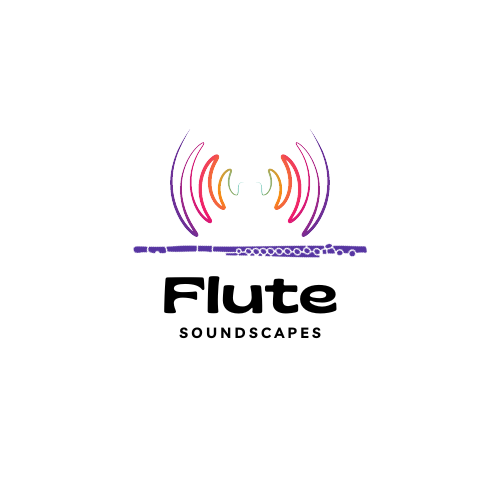Frequently Asked Questions & Policies
.....New procedures for 2025.....
How Much Do Lessons Cost?
This depends on whether you are taking private lessons or joining the Masterclass. Please note: only students AMEB 5th grade and above are eligible for private lessons. Cost of private lessons in 2025 are $49/30 mins. Flat fee for 9 week term is $441. No make up lessons offered.
The masterclass is also 9 weeks in duration with a flat fee of $260.
What If I Join Half Way Through The Term?
Your term fee will be calculated by how many weeks are left in the term. For example, if you join on week 3 (have your first trial lesson on a day in week 3), you will be invoiced for weeks 4-9 upfront (6 weeks=$49x6=$294). However, this does not apply to the masterclass. One flat fee still applies.
Do I Need My Own Flute?
Yes, and if you do not yet have one I recommend hiring one, or buying one. The recommended flute to hire/buy is the Yamaha YFL 222 series. If you're unsure about your commitment to on going learning, it is recommended to hire a flute for 3 months first. You can do this here:
https://sizemusicrental.com.au/instrument-rental/instrument/flute/ OR here: https://www.musicorp.com.au/flutes/
Do You Do Makeup Lessons?
No.
What If My Regular Lesson Falls On A Public Holiday?
You will not be billed for that lesson.
Can I Submit Video Or Audio Recordings For Feedback Between Lessons?
Yes. You can simply record audio or video from a smart device, and send via text message, or if the file is too large, upload to Google Drive and send the link from it, or use the web app Loom for free, and send the link to Liz to view.
What Do My Tuition Costs Cover?
Apart from being offered a weekly private lesson, there are many other things that go on behind the scenes that Liz does which contributes to your learning. These include:
-Finding backing tracks for your music
-Slowing the speed down of certain backing tracks via software if they are too fast for you
-Uploading and synching your music to SoundSlice for easier learning and a deeper understanding of notation and rhythm and how your part fits with the accompaniment
-Recording videos for you so you can hear how certain pieces of music sound and play along with them
-Listening to your submitted videos/audios in order to to give you detailed feedback
-Writing letters of recommendation for private school scholarships when requested
-Submitting the paper work for your exams
-Adding to and maintaining your customised Online Learning Portal
-Finding recordings for you to listen to
-Responding to your text messages/phone calls between lessons
-Guiding you on competition pieces
-Creating green screen video projects with you if you choose (editing the videos outside of your lessons so you have something to keep forever as a memory of your flute playing days)
-Developing Technical Exercises: Creating or selecting exercises to target specific technical challenges, such as finger speed, tone, or intonation, customised to individual challenges.
-Organising end of semester concerts
-Organising holiday ensemble programs and finding/editing appropriate music for them
-Researching appropriate new music to suit your goals and to strengthen the weak links you may have to develop in certain areas of your playing
-Creating e-Assignments for you which are customised to your development and specific goals as a player
What is the Minimum Age You Teach?
8 Years old.
Do You Have Concerts For Students?
Yes. At least twice per year.
Do Students Have To Do External Exams?
No, but I do encourage it. You can choose to do AMEB, Trinity or ABRSM
Do You Offer Zoom Lessons?
Yes. Whether you are travelling, or the traffic is terrible on a given day, or you're unwell and want to prevent the spread of infection or you live elsewhere in the world, zoom lessons are an option. Technologies other than zoom also available.
Where Can You Hire A Flute?
You can hire a flute here:
https://sizemusicrental.com.au/instrument-rental/instrument/flute/ OR here: https://www.musicorp.com.au/flutes/
Do You Teach Adults?
Yes! I love teaching adults.
Do you offer longer than 30 minute lessons?
Yes, get in touch to discuss availability.
Do You Offer Casual Lessons Only?
Yes, but this is subject to availability on the booking calendar. You will need to individually book and pay for each lesson from the booking calendar as you want them.
Can I Have More Than 9 Lessons Per Term?
Yes, but the additional lesson/s will need to be booked and paid for as casual lessons from the booking calendar, and this is subject to what is available on the booking calendar.
Do You Offer Lessons During School Holidays?
At certain times in the holidays, yes. These lessons can be booked via the booking calendar.
I Am Going Away On Holiday During The Term. Can I Get Makeup Lessons?
If you’re on holiday during term time, you are welcome to attend your regular lesson via Zoom if you'd still like to participate. Alternatively, you may choose to miss the lesson, but please note that no refunds or makeup lessons are offered for absences due to holidays.
As a solo educator with limited availability and a waiting list of eager students, I appreciate your understanding that your reserved time slot is held exclusively for you. This means I’m unable to offer credits or rescheduling for personal holidays. To retain your place, please ensure your invoice is paid by the due date.

